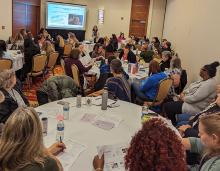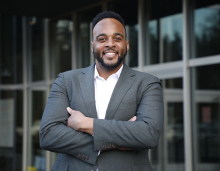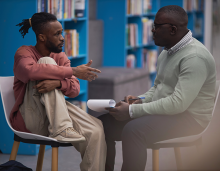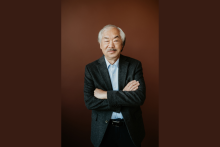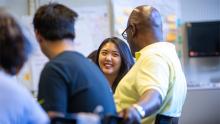During in-person and virtual sessions offered over multiple days in early November, early childhood administrators, coaches, behavior specialists and state teams focused on specific aspects of Pyramid Model implementation and systems-level supports.
AWSP is a K-12 organization and each year recognizes two winners, one elementary and one secondary principal, as its Washington State Principals of the Year.
When it comes to university programs offering degrees and credentials for improving mental health in schools, the UW’s School Psychology program provides something unique.
As the U.S. is facing another literacy crisis, particularly with the Science of Reading, Lakeya Afolalu has a solution. It’s to challenge schools and society to redefine literacy.
Alumna Tianna Mae Andresen has been busy since graduating from the University of Washington, where she double majored in Education, Communities and Organizations (ECO) and American Ethnic Studies.
Alumna Dr. Erin Riesland has received a Fulbright Specialist Program award to complete a project at SayPro in South Africa that aims to exchange knowledge and establish partnerships.
An innovative new project that leverages machine learning to assess mathematics lesson plan quality in the middle grades has been selected by the National Science Foundation (NSF) to receive a $1.5 million grant.
This new training program will prepare education researchers to use advanced supervised and unsupervised machine learning and natural language processing methods, along with human coding, to extract meaningful insights from education data.
The University Council for Educational Administration (UCEA) Excellence in Educational Leadership Award recognizes a practicing school administrator who has made a significant contribution to the improvement of leadership preparation and development.
The University of Washington College of Education has tied for No. 4 among the nation’s best public education schools — and tied for No. 11 among education schools overall — in U.S.
